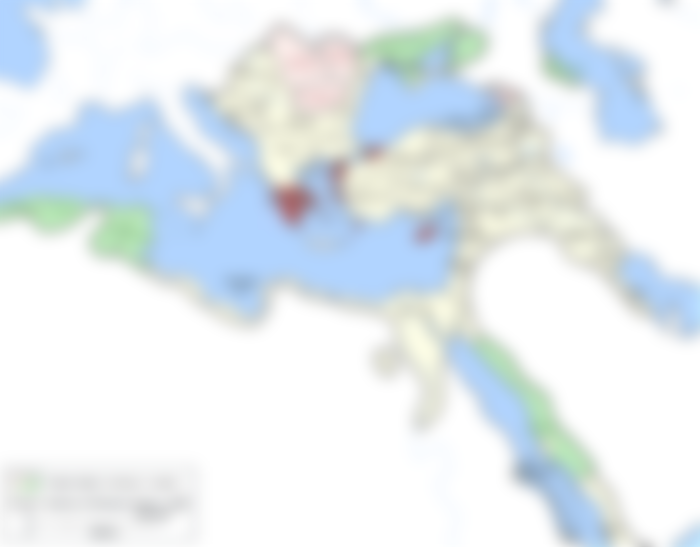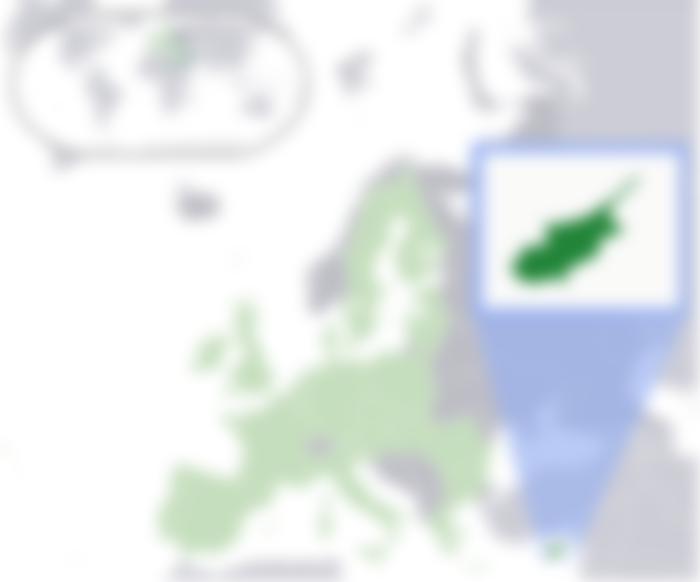Could Russia's invasion of Ukraine enable Cyprus to join nato?

Since Russia invaded Ukraine in late February, NATO membership has become a hot topic of conversation. Despite boasting 30 current members, there are several conspicuous European countries which aren't part of the organization, like Austria and the Republic of Ireland. In today's article we're going to take a look at another European exception, Cyprus, who is interestingly the only EU country which is neither a NATO member state nor even a member of NATO's partnership for peace program. So in this article we'll try and explain why Cyprus isn't part of NATO and the likelihood of them joining anytime soon.
First, though, we need to run through some history because to understand why Cyprus isn't part of NATO, we need to first understand the island's history and its relationship with both Greece and Turkey. Cyprus lies at the very eastern end of the Mediterranean at the crossroads of Europe, Asia, and Africa and has therefore been regarded as a vital piece of strategic territory by many imperial powers over the centuries. Various ancient empires have claimed the island to try and take control of its geography, including the Persians, Romans, and Byzantines, to name just a few. This, though throughout much of its history, the large majority of the island's inhabitants have been Greek-speaking, or at least that was true until the conquest of the island by the Ottoman Empire in the late 16th century saw the arrival of many Turkish-speaking settlers. And this is ultimately the origin of the island's two main communities; the Greek and Turkish Cypriots.

Ottoman empire's regions
Anyway, by the late 19th century, the Ottoman Empire was in sharp decline and in 1878, they offered Britain control of the island in return for support were Russia to ever attack. Then, with the outbreak of the First World War in 1914, Britain and the Ottoman Empire found themselves on opposing sides of the conflict, and as a result, Britain simply annexed Cyprus for themselves. Finally, the Ottoman Empire fell apart, and in its place a new Turkish republic emerged. Not long after, in 1923, Turkey relinquished all claims to Cyprus under the terms of the treaty of Luzern, and then, the following year, Britain declared Cyprus to be a crown colony, with the islands now under formal British control. However, not everyone on the island was happy with British rule. Some Greek Cypriots, who represented about three quarters of the population at the time, wanted what's known as an ENOSIS, or unification with Greece. Many of the Greeks in the Priet community believed that the only way of securing this was via an armed uprising against British rule.
So, in 1955, the Greek Cypriot nationalist paramilitary organization, the EOKA, launched a campaign against British imperial control and attempted to secure an enosis. Although this rebellion wasn't actually aimed at the Turkish Cypriot community, which represented about 20 percent of the overall Cypriot population, The prospect of the islands' union with Greece was firmly rejected by Turkish Cypriots as well as by the Turkish government, and as a result, they launched their own gorilla movement to demand the island be petitioned between Greece and Turkey. By 1958, fighting between the Greek and Turkish Cypriot communities threatened to draw Greece and Turkey into the conflict themselves, which raised the very real prospect of a war starting between two NATO members at what was a crucial point in the Cold War. As a result, the Greek and Turkish governments sought to find a compromise solution, and in January 1959 they agreed that Cyprus would neither unite with Greece nor be partitioned between Greece and Turkey. Instead, it would become an independent sovereign state and, as such, power would be shared between the two communities within the country. In order to facilitate its sovereignty and independence, the country will be protected by Greece, Turkey, and the United Kingdom And in 1960, Cyprus became an independent republic.

Unfortunately, despite this agreement, events didn't remain peaceful. From 1967 to 1974, Greece was run by a right-wing military dictatorship that supported the eoka paramilitary group. So in 1974, the Greek military staged a coup on the island, which prompted the Turkish government to also invade. At the end of this escalation, with many Turks settling in the north of the island, and as a result, in 1983, Cypriot Turks decided to claim the northern third of the island as the independent Turkish Republic of Northern Cyprus. That republic continues to exist today, or it kind of does, depending on who you ask, because Turkey is the only u.n member to have officially recognized the republic as a legitimate state. Regardless, both territories are still separated by a United Nations buffer zone, which is patrolled on a regular basis by the UN peacekeeping force in vehicles, on foot, on bicycles, and by helicopter.
Despite this semi-separation, in 2004, Cyprus opted to join the EU and, in 2008, they adopted the euro as their official currency. Now, it's worth clarifying that the EU considers the entirety of Cyprus to be a single independent state and, as such, doesn't recognize the Turkish Republic of Northern Cyprus. Now, with that all on board, it's safe to say that there's a lot of historic tension between Turkey and Greece over Cyprus. Which brings us back to today's topic of potential NATO membership. What are the chances that Cyprus also becomes a member? It looks unlikely for four main reasons. Firstly, Cyprus remains frozen in conflict, and similar to Ukraine, Moldova, and Georgia, this frozen conflict would likely need to be resolved before any potential NATO membership was even seriously considered. That's because, according to the NATO charter, no one can join NATO until they resolve their territorial problems with their neighbors. The second issue is Cyprus's long-standing policy of neutrality. Thanks to the extreme pressures exerted on the infant republic by its larger neighbors, Turkey and Greece, Cyprus has historically followed a non-aligned foreign policy. In fact, during the First World War, the country's first president took part in the 1961 founding meeting of the non-aligned movement, and Cyprus remained a member of the NAM until their entry into the EU in 2004.

Despite this, it remains the only European country that is not a member of NATO or the Partnership for Peace initiative, and this is not even a contentious issue within the country. Just don't have much desire to join NATO, and some still resent the organization for not playing a more active role in sorting out the conflict in the 70s and 80s. The third reason it looks unlikely, though, is Cyprus's connections to Russia. Ever since Cyprus became an independent state in the 1960s, they built an economy that's relied on Russian tourists, Russian investors, and Russian oligarchs. The island's low tax rates, flexible regulation, and golden visa schemes have enticed Russian investors following the collapse of the Soviet Union. Cyprus has even allowed Russian warships to resupply at Cypriot ports, although that privilege was suspended after the war in Ukraine began. Cyprus has supported EU sanctions against Moscow, despite the fact that Cyprus will be among the EU nations the hardest hit by these sanctions.
The fourth and most important reason that Cyprus won't join NATO is Turkey. In previous articles we've discussed Turkey's negative reaction to Sweden and Finland applying to NATO, so just imagine how Turkey would react if Cyprus, a country which Turkey doesn't even consider to be a legitimate state, were to ever apply to join. So, while Cyprus is swaying away from Russia, NATO membership looks unlikely anytime soon.



